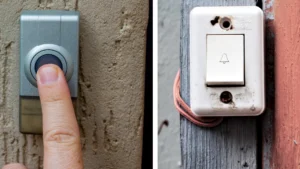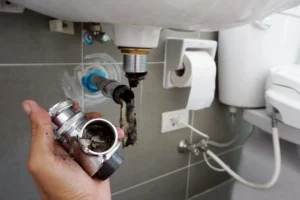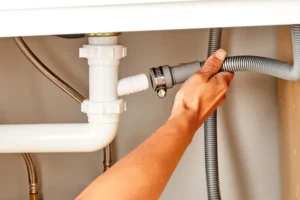Electricity is invisible until the day it misbehaves. One evening your living room lamp flickers, the next morning the coffee maker trips the breaker, and suddenly you’re reminded that every switch, wire, and outlet in your house matters. A qualified residential electrician keeps those little mysteries from turning into expensive or dangerous problems. This page walks you through a clear, no-nonsense process for finding that professional help and explains what honest residential electrical contractors should offer once they pull into your driveway.
Why a Licensed Pro Is Worth Every Rupee
Hiring a friend-of-a-friend who “knows some wiring” might save a few bucks today. It can also void insurance claims tomorrow. Licensed residential electricians carry formal trade credentials and active public liability coverage. That means
- Safety first. Correct breaker sizes, tight terminations, and proper grounding lower fire risk.
- Legal compliance. Renovations often require permits. Licensed tradespeople pull them and close them.
- Real warranties. Manufacturers honor parts guarantees only when a recognized installer signs off.
- Future upgrades. A code-compliant panel today makes solar, batteries, or electric-vehicle chargers easier to add later.
Ask for a license number and proof of insurance before any work starts. If paperwork feels “lost,” keep shopping.
Six Clues You Need a Home Electrician—Now
- Regular breaker trips. Two appliances at once knock power out.
- Buzzing behind walls. Electricity should be silent.
- Hot switch plates. Warm outlets indicate loose connections.
- Persistent flicker. LEDs dim when the air conditioner fires up.
- Two-prong outlets in wet areas. Modern codes demand a safer three-prong, earthed option.
- Extension-cord jungles. Too few outlets lead to dangerous load sharing.
These are not weekend projects. They call for a certified home electrician with test equipment, insulated tools, and a practiced eye.
The Quick-Scan Vetting Checklist
| What to Check | Why It Matters | What “Good” Looks Like |
|---|---|---|
| Licence & Insurance | Protects your family and property | Current documentation on request |
| Written Quote | Avoids hidden add-ons | Clear line items for labour and parts |
| References | Proves track record | Recent jobs similar to yours |
| Warranty | Covers workmanship | Minimum 12 months in writing |
| Timeline | Limits disruption | Start and finish dates locked in |
| Communication | Prevents misunderstandings | Direct phone number, prompt replies |
Professional residential electrical contractors provide these facts with a smile. If someone gets defensive when you ask, treat that as a warning sign.
Understanding Residential Electric Service Options
Every house tells a different story, so electrical work falls into a few common categories:
Safety Inspection : A licensed house electrician visually checks panels, tests loads, scans with a thermal camera for hot spots, and notes wiring age. Ideal before buying a property or every three to five years in older homes.
Minor Repair : Faulty light fittings, damaged outlets, or a single temperamental breaker. Quick fixes, but a professional still uses proper torque tools and torque charts rather than guesswork.
Circuit Upgrade : High-draw appliances—think induction cooktops or an EV charger—need dedicated breakers and often thicker cables. Done right, you will not see another nuisance trip.
Panel Replacement : Fuse boxes from the seventies were never meant for today’s electronics. Modern boards add surge protection and spare slots for future circuits.
Full Rewire : If your home still hides rubber-insulated or cloth-covered cable, a complete wiring overhaul may be safer and cheaper long-term than patchwork repairs.
A reputable residential electrical service company can explain where your home sits on that scale and quote accordingly.
Smart Questions to Ask Before Signing Anything
- Who arranges the permit? Professionals handle paperwork, not homeowners.
- Will my power be out, and for how long? Plan around refrigeration and Wi-Fi downtime.
- What brand of breakers will you install? Quality components cost more but fail less.
- How will you protect carpets and benchtops? Drop sheets and shoe covers show respect.
- Do you label every circuit when you finish? A tidy panel today saves hours during the next repair.
- What if you uncover extra faults? Clear change-order pricing prevents nasty surprises.
- Can I call past clients? Firsthand feedback beats any online review.
A genuine professional answers without hesitation. If responses feel vague or rushed, keep interviewing.
Red Flags Worth Walking Away From
- Cash-only insistence. Hard to track and no paper trail.
- “We’ll start today if you decide now.” Pressure often hides poor planning.
- Missing safety gear. Anyone arriving in thongs and no eye protection is not taking your job seriously.
- No written quote. Verbal estimates grow legs.
- Shifting stories about qualifications. If the license number changes mid-conversation, something is off.
Your house relies on dependable wiring, not shoulder-shrug goodwill. Choose clear, transparent residential electricians instead.
Planning for Tomorrow’s Power Needs
Smart speakers, battery storage, and electric vehicles place new strains on home wiring. Ask your residential electrician about:
- Conduit paths wide enough for data and future circuits.
- Panels with empty breaker slots for later additions.
- Whole-house surge suppressors to protect smart devices.
- Energy-monitoring hardware to track usage in real time.
A little foresight today keeps plaster and paint intact when technology leaps forward.
The Takeaway
Selecting the right electrician is less about bargain hunting and more about trust. A licensed, insured residential electrician keeps your family safe and your devices humming. Check paperwork, ask direct questions, and never ignore uneasy feelings. Reliable residential electrical contractors look at your house as a complete system, anticipate future demands, and leave every circuit safer than they found it. Peace of mind arrives the moment a qualified professional knocks on your door—tool bag in hand, license in pocket, and a clear plan for the job ahead.
Frequently Asked Questions
Is a home electrician the same as a residential electrician?
Yes. Both terms describe a licensed tradesperson who specializes in household wiring.
Do residential electrical contractors take on small jobs?
Most do. Reputable firms keep service teams for quick fixes alongside crews for major renovations.
How often should a safety inspection happen?
Every three to five years, or immediately after purchasing an older property.
What documents should a house electrician leave behind?
A compliance certificate, an itemized invoice, and a labeled panel schedule.
Can I change a light switch myself?
Swapping a faceplate is one thing. Touching active wiring is another. When in doubt, call a pro.










